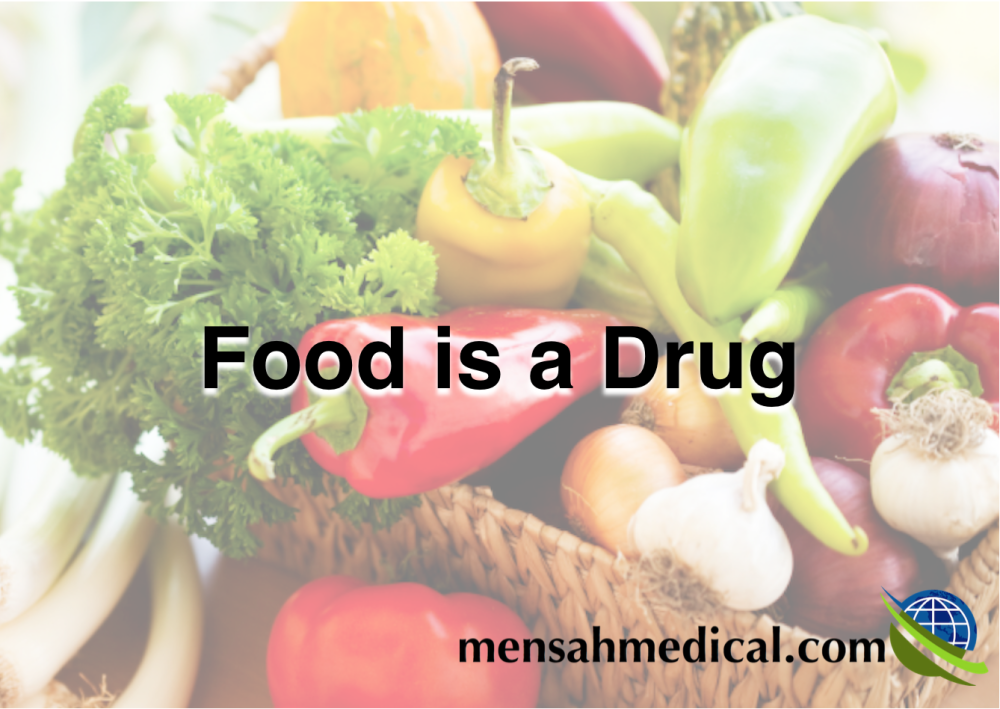March 30th is World Bipolar Day. Bipolar disorder affects nearly 6 million Americans. Unfortunately, the underlying cause is still very much misunderstood and since this condition is attached to much guilt and shame, people often go untreated or even worse, are misdiagnosed.
When folks find out that I help people correct such imbalances with the use of food, I’m often met with shock and amazement. “Is that really possible?” “Can food really do that?” The answer is yes, food can most certainly work as a drug (healing or detrimental), and can affect us in ways we never thought possible.
The foods you consume daily may seem benign on the surface (especially healthy foods), but underneath, is a complex web of nutrients, chemicals, and elements, that may be toxic to you based on your unique biochemical blueprint.
The key to relief is in understanding your ordained blueprint, which requires a paradigm shift in how you approach eating.
I’m not talking about a momentary diversion, but a lifestyle change in how you live. Far too often folks assume there is an easy fix. They think they can change the way they eat for a few months, then go back to eating the way they did before. Sadly, this approach is not practical, and the patient will most certainly have a return of symptoms.
This does not mean you need to be a perfect eater (there’s no such thing), nor does it mean you can’t enjoy flavorful foods. It simply means honoring who you really are via your food choices, which is the opposite of our world today, with its plethora of dietary theories and dogma that only serve to create more confusion and health problems.
Now here’s some food for thought:
- Animal protein (not plant-based proteins) imparts a calming and stabilizing effect. It’s also a great source of brain-loving zinc and vitamin B6, nutrients critical for a healthy brain.
- High-stress levels frequently lead to hypoglycemia and other blood sugar imbalances. Because animal protein is calming to the nervous system, eating a protein-rich meal every three hours can be very helpful. This is especially important in cases of severe oxidative stress, such as those with pyrrole disorder and copper/zinc imbalances.
- Omega 3 fats are not for everyone. In those with pyrrole disorder, they create inflammation, while omega-6 fats provide anti-inflammatory protection. Note: in most cases, this does not mean fish requires exclusion, but it’s very important to steer clear of fish oil supplements.
- Plant-based diets are high in copper and folate and tend to increase the frequency of episodes. Note: folate has a calming effect on overmethylators, but this does not mean a vegan/vegetarian diet is appropriate; animal protein is still required for these individuals to thrive.
- Sugar causes the body to release adrenaline. If histamine is too high (undermethylation), eating sugar can cause adrenaline levels to spike, which in turn creates nervous energy and possible panic attacks. The same holds true for coffee and similar types of stimulants.
- The high fat craze has garnered a lot of attention, but can also increase the frequency and severity of symptoms. Everyone’s fat requirements vary, but I don’t consider putting a stick of butter in your morning coffee to be the wisest choice.
- In cases of yeast toxicity, animal protein is very healing (along with homemade bone broth for those that are not intolerant to free glutamates), because of its inability to provide food for them. Common triggers for yeast toxicity include sugar (natural and processed), vinegar, alcohol, most fermented foods, and simple carbohydrates.
- Undermethylators thrive on high protein diets, while high folate foods increase symptoms. Note: a high histamine reading does not mean you need to avoid high-histamine foods. Histamine intolerance is a separate issue from undermethylation, however, it is possible to be undermethylated and have an intolerance to histamines.
- Those with mast cell disorders or histamine intolerance often find relief on a low histamine diet along with avoidance or minimization of foods high in salicylate, oxalate, glutamate, and often sulfur, while nutrient needs and imbalances are addressed.
I’d be honored to help you navigate through all the confusion and overwhelm with a protocol that is appropriate for your unique chemistry.
Love,
Samantha Gilbert
 Samantha Gilbert is a Nutritional Therapist and Certified Holistic Nutrition Practitioner who works with Mensah Medical patients on dietary plans that compliment patient biochemistry results. Samantha’s new clients receive a 1 hour comprehensive assessment from her. She provides them with an online assessment to complete prior to their initial phone consultation with her where patient health history, emotional traits and triggers, and environmental influences are discussed with her. Mensah Medical patients who become clients of Samantha Gilbert get a customized dietary protocol based on their biotype and nutrient protocol from Drs. Mensah and Bowman. She will also provide her clients with recipes and supportive action guides. All Mensah Medical patients receive a special rate.
Samantha Gilbert is a Nutritional Therapist and Certified Holistic Nutrition Practitioner who works with Mensah Medical patients on dietary plans that compliment patient biochemistry results. Samantha’s new clients receive a 1 hour comprehensive assessment from her. She provides them with an online assessment to complete prior to their initial phone consultation with her where patient health history, emotional traits and triggers, and environmental influences are discussed with her. Mensah Medical patients who become clients of Samantha Gilbert get a customized dietary protocol based on their biotype and nutrient protocol from Drs. Mensah and Bowman. She will also provide her clients with recipes and supportive action guides. All Mensah Medical patients receive a special rate.
